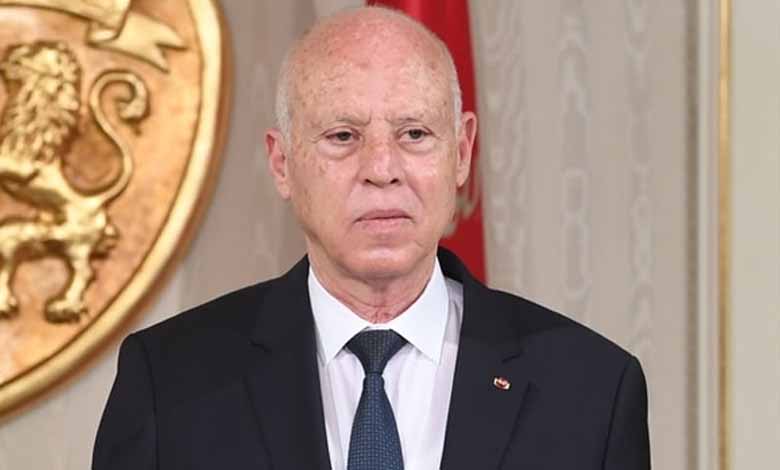Kais Saied focuses on the phosphate file as a card to overcome the economic crisis

Tunisian President Kais Saied has shown increasing interest in phosphate as an important way to overcome the economic and financial crisis that the country is going through. Economists confirm that re-exporting the material abroad, as it was before the revolution, would meet Tunisia’s needs in terms of hard currency, and thus not resorting to the International Monetary Fund loan, which is estimated at $1.9 billion.
During his supervision of the meeting of the National Security Council on Wednesday evening, Saied addressed the issue of phosphate production, which witnessed a crisis after the revolution due to several factors, including the conflict with the trade unionists in the Gafsa Phosphate Company, as well as some who were involved in corruption in the sector and who sought to disrupt production and prevent the transport of the material via railway.
“For more than 10 years, the sector has been in a difficult situation, which is unacceptable by any standard,” Ben Ali said in a statement.
“Tunisian phosphates is one of the best and best varieties in the world, and it is possible to extract 10 million tons annually,” he added.
“Phosphate accounted for about ten percent of Tunisia’s exports before 2011, when olive oil replaced it as the top export.” “In 2018, phosphate’s share of exports shrank to around four percent.”
He said that the sector can save a lot for the state budget and avoid borrowing from abroad, stressing that this will lead to the recovery of the Tunisian state and the Tunisian economy.
He called for an end to the difficult situation faced by the sector, in a clear indication of the need for state agencies to confront all parties that prevent the continuous production of phosphate for their own interests and consequently cause damage to the national economy.
The Tunisian president spoke about the file of transporting phosphate via railroads, as well as the corruption of the deal to buy cars, which is not suitable for use on the railway line connecting the mining basin with the export ports, especially in the state of Sfax.
“Since the 2011 uprising that ended former president Zine El Abidine Ben Ali’s rule, the phosphate company has commissioned thousands of employees to do environmental work after a wave of protests demanding employment and development and causing phosphate production to be completely halted for periods up to several months.”
“Strikes and a halt to phosphate production, a vital industry for Tunisia and a major source of foreign currency, have caused a loss of around $10 billion since the 2011 uprising.”
Economist Moez Al-Jodi said in a statement to Channel Nine, private channel, on Tuesday, that the return of phosphate exports in full and restoring confidence in the foreign markets in Tunisia will lead to saving the national economy, and therefore there is no need for Tunisians to loan the Monetary Fund.
Observers, however, believe that this step requires the strength of the state apparatus to confront some parties, especially the syndicates, which will prevent efforts to restore confidence in Tunisian phosphate. This is what explains Saied’s meeting with members of the National Security Council.












